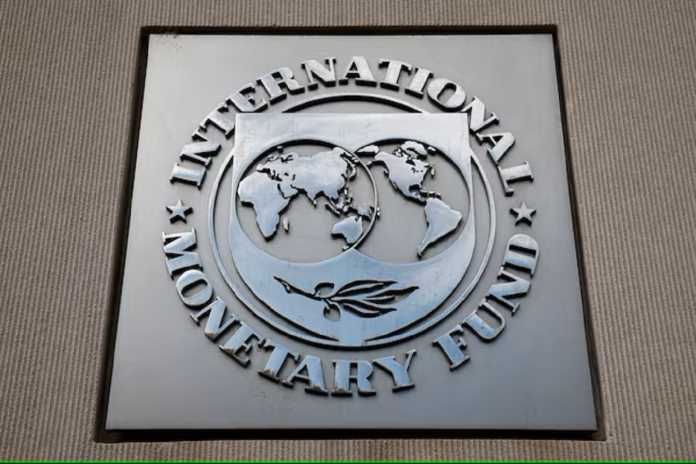Our Terms & Conditions | Our Privacy Policy
The divergent approaches of the IMF and World Bank in Malawi: A comprehensive analysis
 Malawi’s IMF programme ends after only $35 million disbursed
Malawi’s IMF programme ends after only $35 million disbursed


By Jones Gadama
Malawi has long been a focal point for international financial institutions, particularly the International Monetary Fund (IMF) and the World Bank.


These institutions play crucial roles in shaping the economic landscape of developing nations, providing financial assistance, policy advice, and technical support.
However, their approaches and focus can differ significantly, as evidenced by recent developments in Malawi.
The World Bank’s approval of a $350 million funding package for the Mpatamanga Hydropower Project contrasts sharply with the IMF’s suspension of its Extended Credit Facility due to concerns over fiscal discipline and foreign financial policy.
This analysis delves into the implications of these contrasting actions, exploring the motivations, methodologies, and potential outcomes of the IMF and World Bank’s engagements in Malawi.
The World Bank’s commitment to funding the Mpatamanga Hydropower Project underscores its focus on infrastructure development and energy security in Malawi.
The project aims to enhance the country’s power generation capacity, which is critical for economic growth and development. Malawi has faced chronic energy shortages, hampering industrial growth and limiting access to electricity for households.
By investing in hydropower, the World Bank seeks to address these challenges, promote sustainable energy solutions, and stimulate economic activity. The funding package not only represents a significant financial investment but also reflects the World Bank’s broader strategy of fostering development through infrastructure projects that can have a multiplier effect on the economy.
In contrast, the IMF’s recent suspension of its Extended Credit Facility highlights a more stringent approach focused on macroeconomic stability and fiscal discipline.
The IMF’s decision was driven by concerns over Malawi’s fiscal management and foreign financial policy, which it deemed unsatisfactory. The IMF typically emphasizes the importance of sound economic policies, including budgetary discipline, effective governance, and transparency.
By suspending its support, the IMF aims to signal the need for Malawi to implement necessary reforms to restore fiscal stability and build investor confidence. This approach reflects the IMF’s broader mandate to ensure that countries maintain sustainable economic policies, which is essential for long-term growth and stability.
The differing focuses of the IMF and World Bank in Malawi can be attributed to their distinct mandates and operational philosophies. The World Bank primarily aims to reduce poverty and promote sustainable development through long-term investments in infrastructure, education, and health. Its projects often have a direct impact on the lives of citizens, providing essential services and creating jobs.
The World Bank’s approach is generally more flexible, allowing for a focus on specific projects that can yield immediate benefits for the population.
On the other hand, the IMF’s mandate revolves around maintaining global financial stability and providing short-term financial assistance to countries facing balance of payments crises. The IMF’s approach is often characterized by conditionality, requiring countries to implement specific economic reforms in exchange for financial support.
This can lead to tensions, as the reforms demanded by the IMF may not always align with the immediate needs of the population. In Malawi’s case, the IMF’s suspension of the Extended Credit Facility serves as a wake-up call for the government to prioritize fiscal discipline and sound economic management.
The implications of these contrasting approaches are significant for Malawi’s economic trajectory. The World Bank’s investment in the Mpatamanga Hydropower Project has the potential to transform the energy landscape, providing a reliable power supply that can drive industrialization and economic growth. Improved energy access can enhance productivity, attract foreign investment, and ultimately contribute to poverty reduction.
However, the success of such projects often hinges on the government’s ability to manage resources effectively and ensure that the benefits of increased energy capacity are equitably distributed.
Conversely, the IMF’s suspension of its Extended Credit Facility raises concerns about Malawi’s ability to maintain macroeconomic stability in the face of fiscal challenges. Without the support of the IMF, Malawi may struggle to finance its budget, leading to potential cuts in essential services and social programs.
The suspension also risks undermining investor confidence, as it signals to the market that the government may not be adhering to sound economic principles. This could deter foreign investment, further exacerbating the country’s economic challenges.
The contrasting approaches of the IMF and World Bank also highlight the complexities of international financial assistance. While the World Bank focuses on long-term development goals, the IMF emphasizes the need for immediate fiscal discipline.
This divergence can create challenges for Malawi’s government, which must navigate the demands of both institutions while addressing the pressing needs of its citizens. The government faces the difficult task of implementing necessary reforms to satisfy the IMF while simultaneously pursuing development projects that can improve the quality of life for its population.
Moreover, the relationship between Malawi and these international financial institutions is influenced by broader geopolitical dynamics. The IMF and World Bank operate within a global financial system that often prioritizes the interests of developed nations.
This can lead to a perception that the conditions imposed by the IMF are overly stringent and may not take into account the unique challenges faced by developing countries like Malawi. Critics argue that the IMF’s focus on austerity measures can exacerbate poverty and inequality, undermining the very goals of economic stability and growth.
In light of these challenges, it is essential for Malawi’s government to adopt a balanced approach that addresses the concerns of both the IMF and World Bank. This may involve implementing fiscal reforms that enhance transparency and accountability while simultaneously investing in infrastructure projects that can drive economic growth.
By fostering a collaborative relationship with both institutions, Malawi can work towards achieving its development goals while maintaining macroeconomic stability.
Furthermore, the government should engage in dialogue with civil society and local stakeholders to ensure that development projects align with the needs and priorities of the population. This participatory approach can help build public support for necessary reforms and foster a sense of ownership over development initiatives. By prioritizing inclusive growth and equitable resource distribution, Malawi can create a more resilient economy that is better equipped to withstand external shocks.
The contrasting approaches of the IMF and World Bank in Malawi reflect the complexities of international financial assistance and the challenges faced by developing countries. While the World Bank’s investment in the Mpatamanga Hydropower Project offers a pathway to improved energy access and economic growth, the IMF’s suspension of its Extended Credit Facility underscores the importance of fiscal discipline and sound economic management.
For Malawi to navigate these divergent paths successfully, it must adopt a balanced approach that prioritizes both immediate fiscal stability and long-term development goals. By fostering collaboration with international financial institutions and engaging with local stakeholders, Malawi can work towards a more sustainable and inclusive economic future.
Like this:
Like Loading…
Discover more from The Maravi Post
Subscribe to get the latest posts sent to your email.


Images are for reference only.Images and contents gathered automatic from google or 3rd party sources.All rights on the images and contents are with their legal original owners.



Comments are closed.